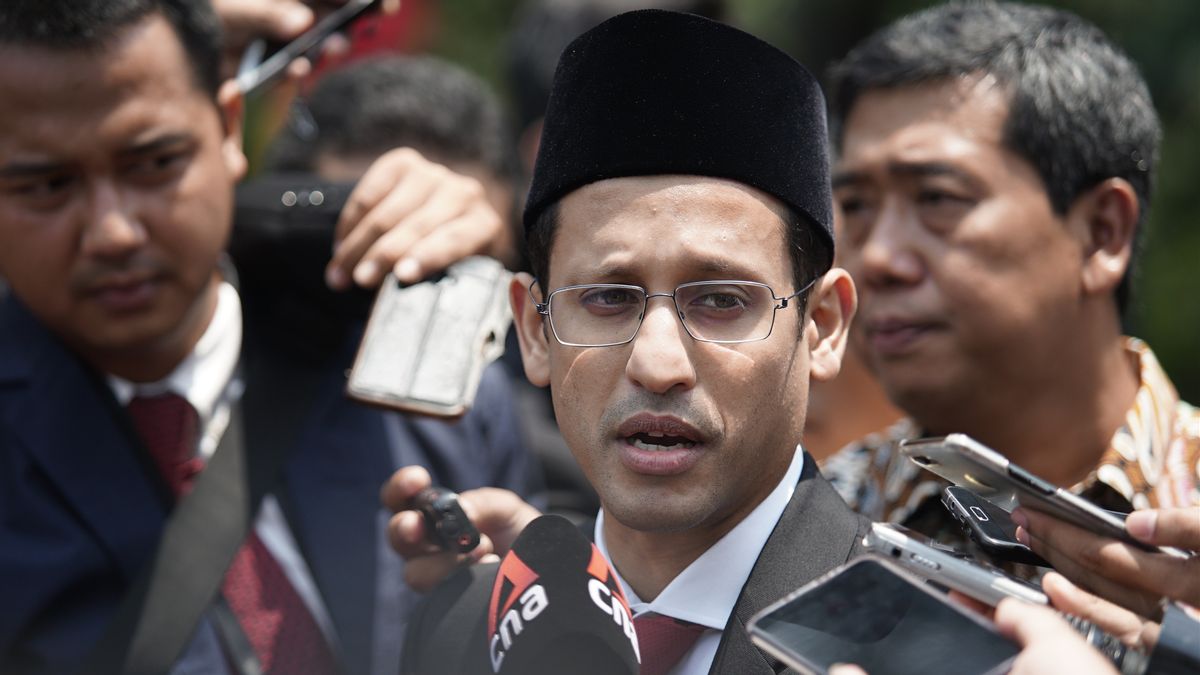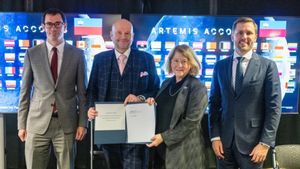JAKARTA - The Ministry of Education and Culture has distributed 2020 Internet Data Quota assistance to 35,725,387 people. This assistance is intended to ease the burden on the education community both at schools and campuses while holding online learning during the COVID-19 pandemic.
This was emphasized by the Minister of Education and Culture Nadiem Makarim at the Merdeka 9 (FMB9) Forum which was held virtually entitled "Freedom of Learning, Transformation of Indonesian Education", Friday January in Jakarta.
"We managed to send it to 35 million people consisting of students, students, teachers and lecturers throughout Indonesia," said Minister Nadiem.
The quota assistance program in detail includes, among others, 1,920,248 Early Childhood Education (PAUD) students, 58,517 Equivalence students, 13,885,829 Elementary School (SD) students, and 6,445 Junior High School (SMP) students. 774 students, 3,707,110 Senior High School (SMA) students, 3,674,296 Vocational High School (SMK) students, 70,337 Special School (SLB) students.
Then there were 221,742 Vocational Students, 3,661,113 Academic Students, 15,095 Vocational Lecturers, 151,544 Academic Lecturers, and 1,913,782 Teachers.
As many as 49.96 percent or 17,848,083 beneficiaries using Telkomsel cellular operators, 17.11 percent or 6,112,814 beneficiaries of assistance users of Indosat mobile operators, 17.38 percent or 6,210,614 beneficiaries using XL Axis cellular operators, 10 , 96 percent or 3,915,026 beneficiaries use Tri cellular operators, and 4.59 percent or 1,638,850 beneficiaries use Smartfren cellular operators.
The large number of internet data quota assistance was revealed by the Minister of Education and Culture as the history of assistance in the first largest education sector in Indonesia. Because, it is able to distribute as many as 35 million people in less than one year.
"This is the first time this has been done to distribute aid for the largest internet data quota in Indonesian history that has ever happened," he added.
Therefore, he hopes that this internet data quota assistance can make the Distance Learning (PJJ) process run optimally in the midst of a pandemic. So, human resources (HR) in the future can remain qualified as long as the virus outbreak is still spreading in the country.
"This is government support to ease the economic burden to implement PJJ," he said.
In addition to quota and internet assistance, the Ministry of Education and Culture also provides BOS affirmations and assistance to Private Universities (PTS) in the form of Single Tuition (UKT) assistance. A total of about 410,000 students who have received the assistance conditions, so they can continue their studies. This is for the sake of the continuity of the education sector and the success of the independent learning program.
Encourage Schools in Face-to-Face 3T AreasMeanwhile, the Minister of Education and Culture also encouraged schools in the frontier, outermost and disadvantaged (3T) areas to immediately start face-to-face learning, but with various considerations.
The basis for this recommendation, said Minister Nadiem, refers to the last 4 ministerial Joint Decree (SKB), which delegates this to the respective regional governments. The regional government can immediately accelerate this decision, because many regions have difficulties implementing distance learning (PJJ).
"We give the right to return to the local government. But of course with the approval of the school principal and school committee," he said.
All LGs at the provincial and district levels have the right to open school faculties. They said the Minister could take discretion, where areas that might be relatively safer from the side of COVID-19, but also areas that are relatively very difficult to implement PJJ.
"So the recommendation from the Ministry of Education and Culture is, especially in 3T areas or areas that are very difficult to implement PJJ, face-to-face schools should be carried out immediately," he said.
For this reason, his party encourages especially for the Regional Governments in the 3T regions to accelerate as quickly as possible to be able to do face-to-face meetings, because in these areas PJJ is the most difficult to do.
The English, Chinese, Japanese, Arabic, and French versions are automatically generated by the AI. So there may still be inaccuracies in translating, please always see Indonesian as our main language. (system supported by DigitalSiber.id)













